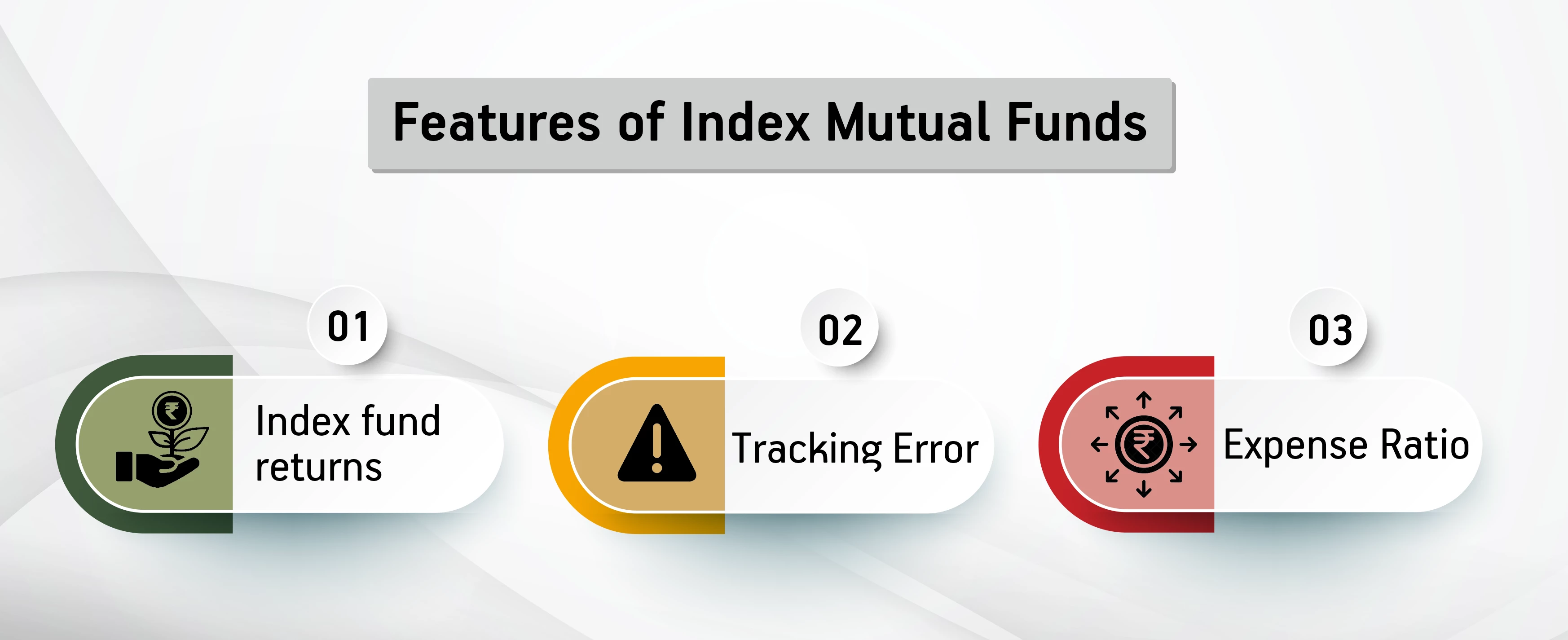-
Our Products
Our FundsFocus Funds
-
Self Care
Self-ServiceFind InformationWays To TransactPartner Solutions
-
Downloads
- Learnings
- About Us
-
More
-
Shareholders
-
Shareholders
-
-
SIP Calculators
- Back
-
Shareholders
What is an Index Fund?
Aug 03, 2022
4 Min
4 Rating
Index Mutual Funds are mutual funds that attempt to replicate the performance of a financial market index. In some situations, they imitate a segment of the stock market or the entire market.
Let's start with a basic understanding of how an index works. A market index is a means to measure and analyse the performance of a specific group of assets, such as stocks or bonds. Indices are frequently utilised to set benchmarks or as a performance indicator for the replicated market segment.
Suppose an index mutual fund is tracking the NSE Nifty 50 Index. In that case, the fund will have 50 stocks in its portfolio, each of which will be allocated a set weightage by the stock market, mirroring the index's proportions. As a result, the index fund's performance would be determined by the performance of the market's actual stocks.
Index funds are also necessary for portfolio diversification, which is a strategy that involves spreading your investments over a variety of assets and securities to balance out or limit the risk that an investor takes on. When investors invest in an index fund, they are exposed to a wide range of stocks.
Features of Index Mutual Funds
Index fund returns: Index funds are less volatile than actively managed funds as index funds are passively managed funds. When the markets are going up, index fund returns are usually attractive.
However, it needs to be understood that the returns from the index funds will be similar to the underlying index returns. It is because passive funds aim to give returns in line with the index.

Tracking Error: While the objective of the passive fund is to deliver returns that are very close to the index's return, the index fund's return and the market returns are never the same.
The performance of an index fund is not measured by the returns but by tracking error. The tracking error is the difference between the fund's return and the benchmark return. Tracking error occurs because of the fund's expenses or allocation of cash equivalent component. So, the lower the tracking error, the better is the index fund.
Expense Ratio: The expense ratio is the percentage of the total fund's assets that is charged by the fund house as a fee for managing the fund. Compared to an actively managed fund, passive funds have a lower expense ratio as the fund managers don't take active investment calls and only replicate the underlying index.
A lower expense ratio also translates into lower tracking error. As a result, an index fund with a lower expense ratio is deemed to be a better passive fund than an index fund with a higher expense ratio.
Who should one invest in Index Funds?
It's critical to consider factors like your risk appetite, investment strategy, investment dura-tion, etc. before investing in index funds.
If you have a small-to-medium risk appetite and prefer to play it safe, index mutual funds are the way to go
If you are looking to invest in the stock market in a passive manner
If you are looking to invest less time selecting mutual funds and the overall invest-ment process
Also Check out - What is mutual fund investment
Conclusion
If you're new to investing, index funds is a terrific way to have a feel of the equity market at a low cost and with no effort. Index funds might suit you if you are wary of taking high risks and desire returns similar to the broader markets. Also Check out - What is sip investment
Mutual Fund investments are subject to market risks, read all scheme related documents carefully.





 1800-270-7000
1800-270-7000




